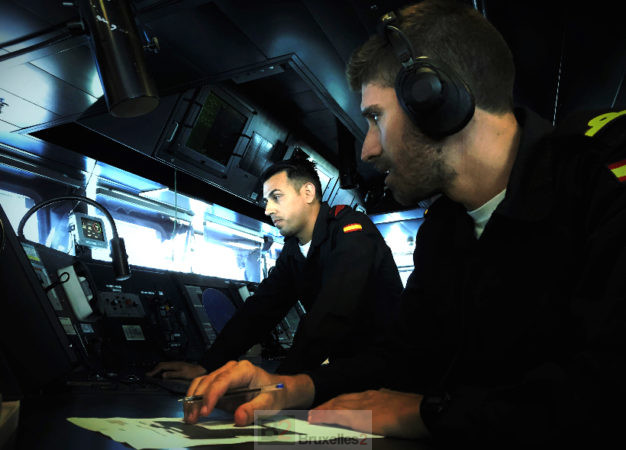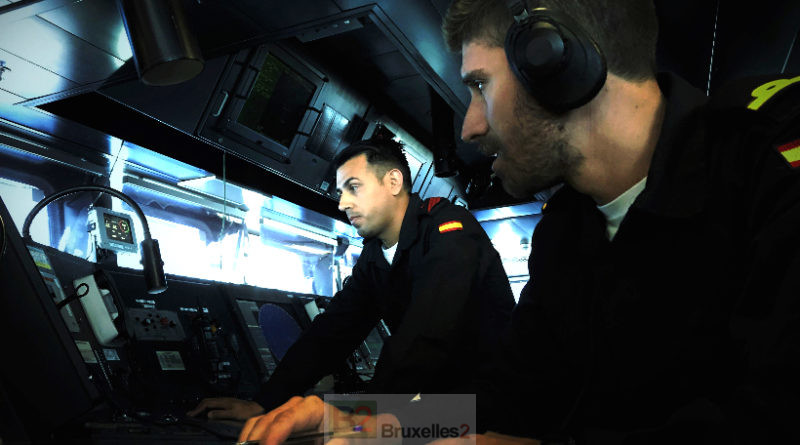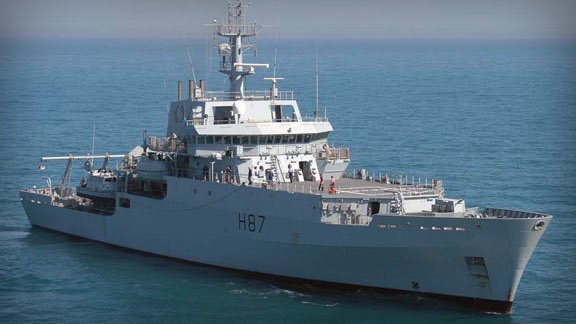A change of command for EUNAVFOR Med (formerly Sophia) cannot be ruled out
(B2 - exclusive) The EU military operation in the Mediterranean (EUNAVFOR Med) will change hands by the end of the week. A decision that falls flat while renewal is on the agenda. Question on everyone's lips today in Brussels: will Italy keep command of the operation beyond March?

The ambassadors of the political and security committee must, this Wednesday (February 19), validate the appointment of a new head of Operation Sophia (EUNAVFOR Med) to fight against trafficking in the Mediterranean.
An Italian relay planned
Italian Vice-Admiral Fabio Agostini should thus officially succeed his compatriot Vice-Admiral Enrico Credendino. This from Friday (February 21). The admiral, who has presided over the destiny of the operation from the start, is ending his military career and could be expected to take on other responsibilities in the months to come (shh...). An official handover ceremony of the operation commander is also scheduled in Rome on Friday.
A desire for renewal...
This change had been planned long before the controversy broke out and the Austro-Hungarian veto on the new operation (as our faithful readers already know, read Booklet 07.02.2020). So today, it falls somewhat flat. This nomination itself is a bit bizarre. Because all the parameters of the EUNAVFOR Med operation must be reviewed. Political pressure obliges. The operation plan, the rules of engagement, the area of operation, will be reviewed. The name of the operation will be changed. In this maelstrom of renewal, the question of changing the headquarters (based in Rome) or the command of the operation, which belongs to the Italians, arises in a very concrete way.
... who could win the new leader
Everyone wonders: will the admiral just go for a ride, for a few weeks? The question has really been asked, as several diplomatic and military sources have confirmed to us. The EEAS spokesperson did not deny this point. " The planned appointment is [good] for Operation Sophia clarified Virginie Battu during the midday press briefing, questioned by B2 on Tuesday (February 18). " In the elements of the political agreement — intervened yesterday between the ministers (read: Don't call me Sophia anymore! The key points of the new EU operation in the Mediterranean) —, we don't talk about Operation Sophia anymore. Beyond command, [several points need to be reviewed] starting with the mandate ". And to add: Operation Sophia runs until the end of March. I will not prejudge what will happen next. We are talking about a new operation. »
Conclusion: a change (perhaps) necessary
It seems difficult for Italy to keep both the headquarters based in Rome and the command of the operation.
A very political question
This would be the opposite of the desired effect in political matters, which consists in making a clean sweep of the past in order to start from scratch, a " new operation ". Even if everyone is aware that the word 'new' is above all there to justify to public opinion in Austria and Hungary above all, but also in Italy, the slight reversal of their governments, other than cosmetic changes are necessary.
Change HQ: more difficult in a short time
Changing the headquarters takes time — if only to put the devices in place at the technical level. Now if you ask the military, they know how to do it quickly, with two fingers on the sailor's beret. Two countries require this adaptability, in my opinion: 1° Spain, which already has a headquarters dedicated to a maritime operation, in Rota (read: At the headquarters of the Atalanta anti-piracy operation in Rota (Cadiz)). 2° France which can quickly increase in power. Two other headquarters exist in the European Union: Potsdam in Germany and Larrissa in Greece. But the time allowed to build up a HQ seems too short. To start at the end of March, the arrangements should have already been made today.
Change operation commander: why not
There remains the change of commander. This is what is easiest at the symbolic level. And it is in this perspective that eyes turn. In this regard, several countries could claim the title: Spain or Greece for example (which has no operation command), or even Germany or France. And, why not a female commander for the operation. Wouldn't that really change?
(Nicolas Gros-Verheyde)



